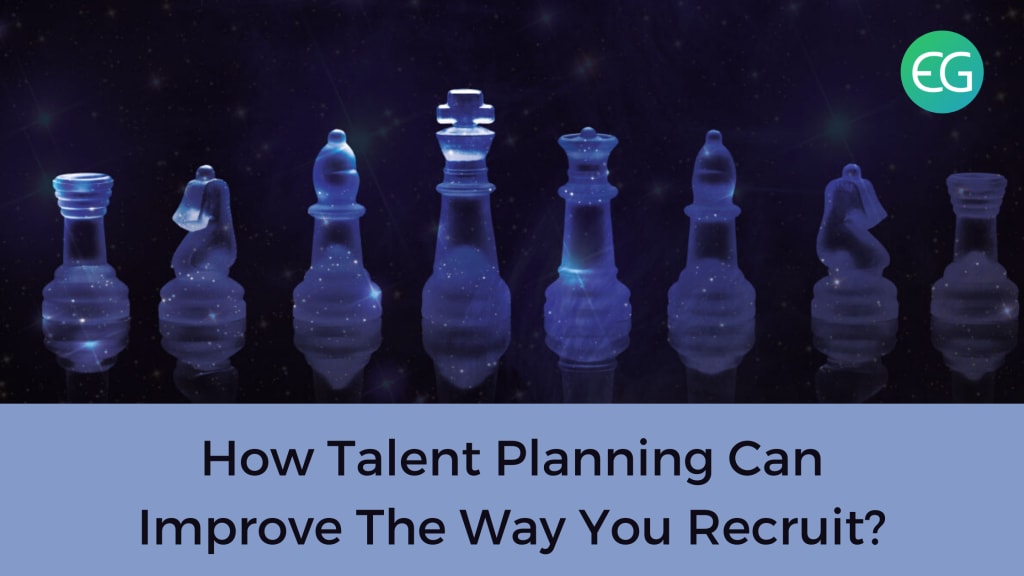How Talent Planning Can Improve The Way You Recruit?
Talent planning is quite a broad and illustrative category that includes activities such as succession planning, talent review, strategic HR planning, etc.

Rarely we have seen recruiting to be based on any sort of strategic plan. For most of the organizations, recruiting is commonly a tactical operation and a series of things that happen to take place whose ultimate result is that of qualified people getting hired. Recruitment most commonly is reactive, and very few recruiters have the time or insight to look forward more than just a few weeks ahead of time. To make sure that your company has a good chance at recruiting the best and most skilled people and to successfully operate in today’s global, competitive economic environment, all businesses will need a strategic plan to ensure appropriate resources and tactics are there in place.
It has been revealed in a new study from Vistage Research and the National Center for the Middle Market (NCMM) that talent planning plays a very critical role in the growth, development, and performance of companies in today’s world.
Talent planning is quite a broad and illustrative category that includes activities such as succession planning, talent review, strategic human resource planning, skill gap analysis and strength analysis, staffing development, and performance management. It includes identifying key positions and players, understanding and recognizing skills gaps, and creating succession plans to ensure that crucial roles are always filled.
Talent planning is the first and one of the hardest steps in talent management. It means you should have a deep understanding of the organization’s future business goals and the extremely competitive environment the organization functions in. It is a mix of understanding and predicting demand, while at the same time being educated and aware of the talent supply situation from all the sources that are available. This step needs to be far more than simply listing the jobs projected in the annual budgeting process and factoring in turnover. It is an evolving process, as opposed to an annual event, and is the most dynamic and critical stage of any strategic process.
Importance of Talent Planning:
You do not have to beat around the bush. Why is Talent Planning Important you ask? The simple answer is because it capitalizes on your employees — evidently, the most significant strength of your organization. Talent management encourages you to enhance the esteem of workers.
Firstly, it pulls in the perfect candidate for the organization. If recruited, those new representatives help improve business execution. It additionally builds the motivation among employees meaning, workers are inclined to finish their tasks and remain with the organization. By retaining these workers, the organization saves money on recruitment and performance management costs in the long run. It also helps in increasing employee engagement. With a solid Talent Management system set up, workers see more chances to grow. Once more, this creates higher retention for the organization and business execution.
There is a broad agreement that talent management is successful (or even effective) at drawing in and retaining talent just as improving the overall business performance. There are a couple of fundamental reasons why this is the case.
It assists organizations by improving performance
With top experts in your organization, you can arrive at any objective. Talent management is best of all when it consolidates three key parts: fast talent allocation, positive employee experience, and a key HR group.
It permits organizations to remain competitive
By recruiting and creating talented representatives, your association becomes more grounded and more ready to confront changes and dangers.





Comments
There are no comments for this story
Be the first to respond and start the conversation.